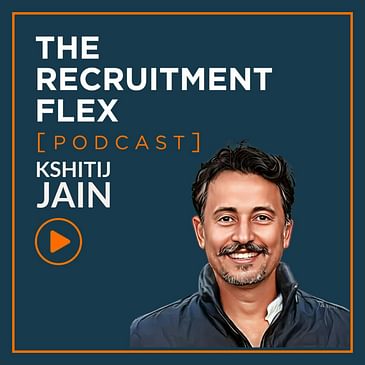This week we had the honour to welcome Kshitij Jain CEO of Joveo to the podcast. KJ has a truly global view of the job board industry. He took Monster.com around the world, working with the top TA Leaders in several countries, he saw patterns emerge. The challenges TA faced were rooted in the infinite combinations for job titles and job descriptions.
- Tracing his steps after Monster leads us to the quick apply process as his last company was acquired by Indeed.com in 2014.
- From the start in 2017, Joveo’s vision has never wavered, “Do 1 thing & do it right”.
- More KJ wisdoms:
Recruiters are not marketers
80% of TA is doing it wrong
Job advertising hasn't changed since 1995
- All this from a CEO whose annual salary is $0.96 per year.


